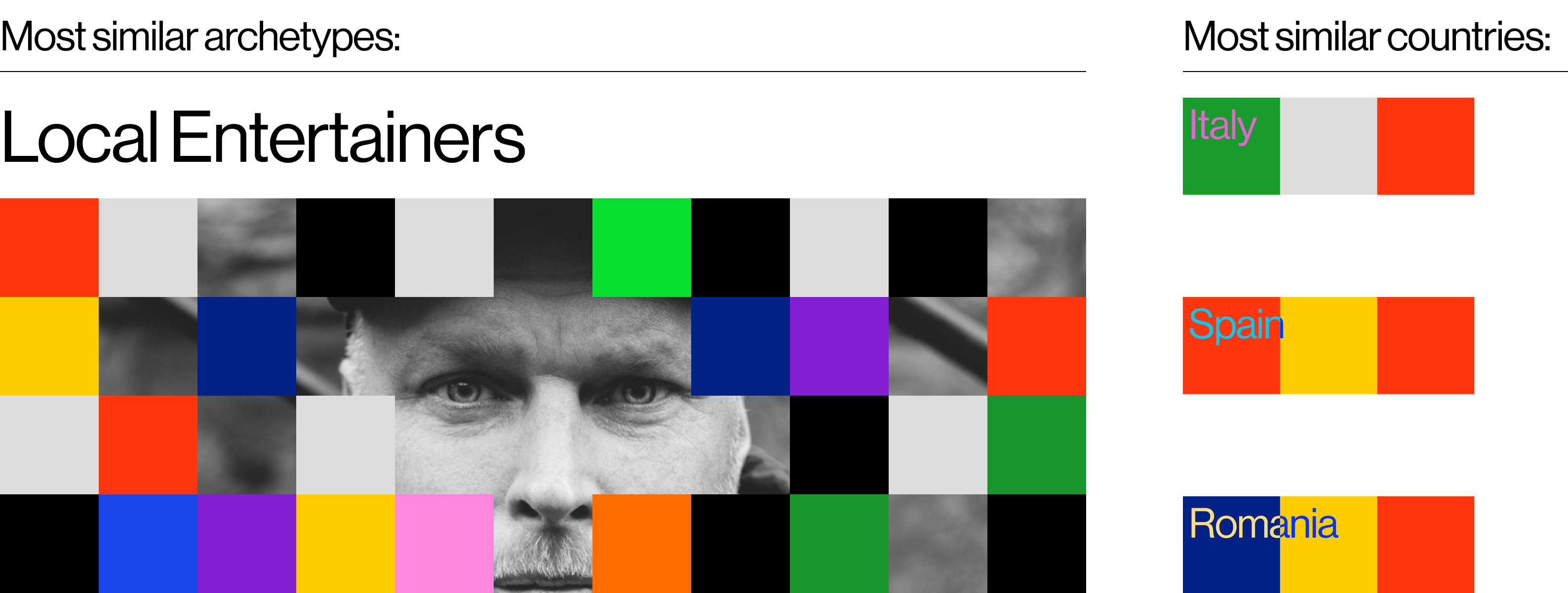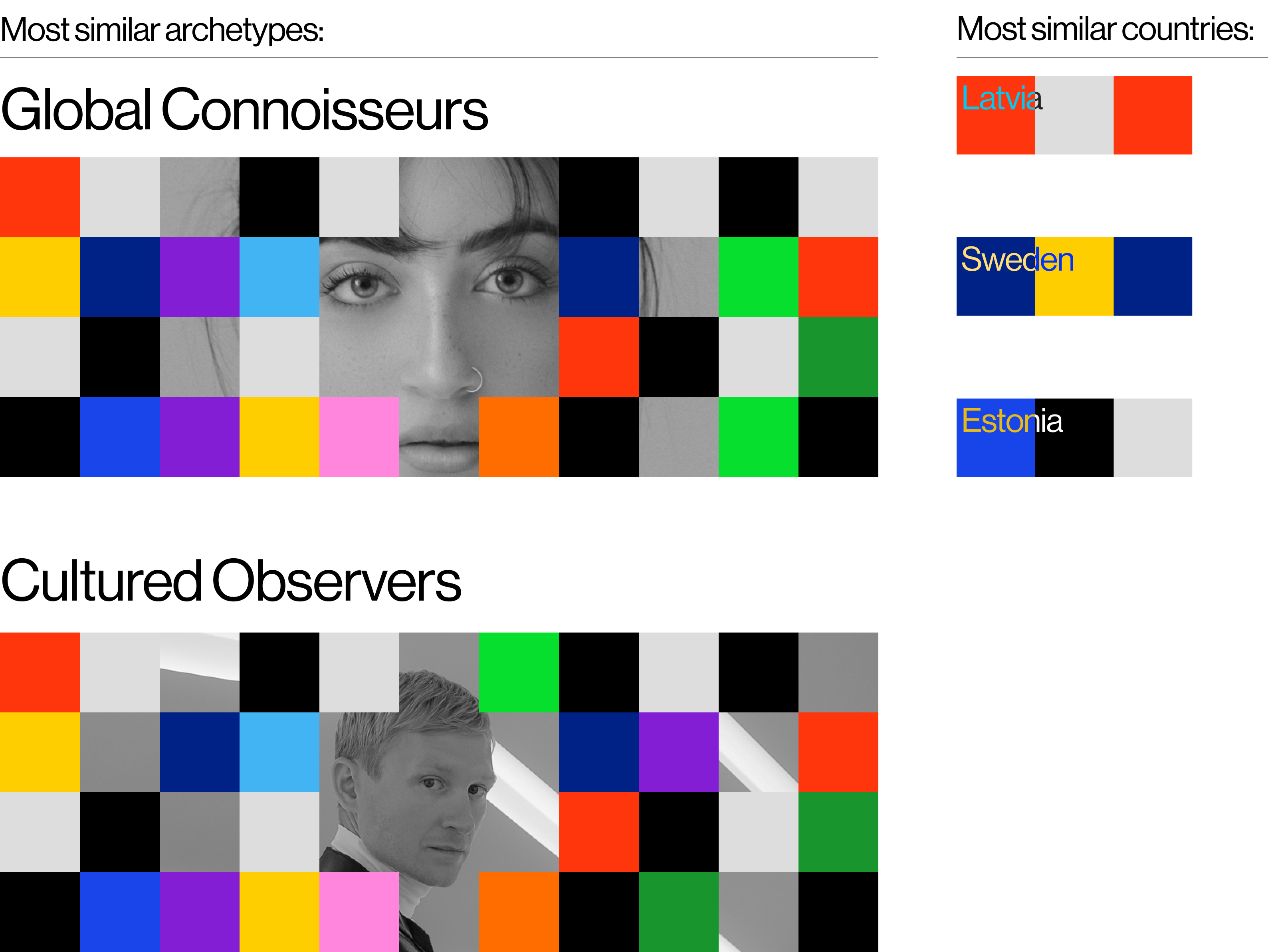DCI: North America
The DCI data captures lived culture of the countries of Europe by looking at their music, content, and search preferences.
Those preferences are represented in the dimensions of Personality, Lifestyle, and Routine which highlight the differences and similarity of European countries, providing a starting point for businesses who want to enter the European market.
But what about the North American market? Does a shared history and strong cross-Atlantic relations make it similar to Europe? Or has space and time allowed us to develop our separate unique digital culture identities?
To answer these questions we extended the country list of the DCI and uncovered Personality, Lifestyle and Routines of Canada and the US as well.
We find that the US and Canada are more different to each other than they are to Europe overall, while the US is more similar to Europe than to Canada.
We find that the US and Canada are more different to each other than they are to Europe overall, while the US is more similar to Europe than to Canada.
It turns out that the difference between Canada and the US is, however, largely due to their content preferences - our analysis shows that the US prefers highly local content, while Canada’s content consumption is characterized by being highly international. Canadians appear to be more open to English language content from other countries like the US, Australia and Britain, while also enjoying channels from Korea, Japan, India, Germany, and - not surprisingly - France.
The US, on the other hand, seems to also carry over its strong sense of national pride into its Lifestyle despite its ethnical diversity. We find that the majority of trending YouTube channels come from the US, resulting in one of the strongest local content preferences of the entire DCI.
While their Lifestyles, as expressed through content preferences, seem to be entirely opposed, the US and Canada range fairly close on other dimensions. Similar in personality and routines, they both share a slightly somber personality, and show a strong appreciation for entertainment and engaging with content.
United States of America
Taking a deeper country-by-country look, we see that the US’ cultural profile is marked by a lower-than-average valence paired with average tempo and energy, reflecting a slightly more negative but balanced personality. The country’s predominantly local orientation lets it rank among the few countries — such as Italy, Germany and Austria — that favor locally sourced content with a focus on more niche topics. In terms of routines, the US's strong emphasis on entertainment over practicality, combined with a clear disposition to enjoy content actively, highlights the US as a country that seeks engaging content for entertainment purposes.
When taking all scores into account, the US is the most similar to the archetype we called Local Entertainers, with Italy, Spain, and Romania being the closest countries. Extending the Top 3 we find that they are followed by Ireland, the UK and Germany. It seems that the US’ strong immigrant heritage from those countries is still reflected today in its digital culture.

Canada
The Canadian cultural profile - as that of the US - is as well marked by a lower-than-average valence paired with average tempo and energy. It reflects a slightly more negative but balanced personality, and also a tendency to seek engaging content for entertainment purposes in daily routines. Distinct in their highly international Lifestyle, Canadians enjoy international content while favouring niche and specialized topics over universal ones.
When taking all scores into account, Canada is the most similar to the archetypes of Global Connoisseurs and Culture Observers, representing an interest in international content. It’s closest matches in Europe are Latvia, Sweden, and Estonia, while being more digital-culturally different from France. It seems that Canada has forged it’s own digital cultural profile, resembling more that of Northern Europe, than that of France.




